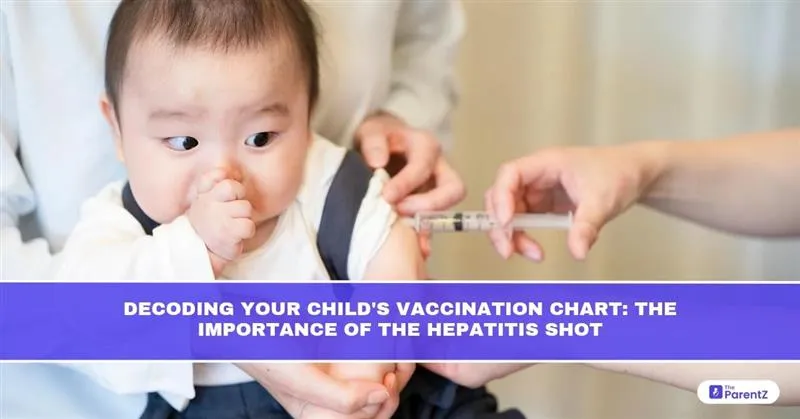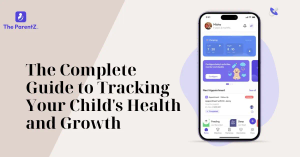When you hold your child’s vaccination card, it might seem like a maze of abbreviations, Hep B, DPT, IPV, MMR, but every shot plays a vital role. Among them, the hepatitis vaccine might not sound urgent, but it is a silent shield against lifelong liver disease.
What is Hepatitis, and Why Should You Care?
Hepatitis refers to inflammation of the liver, often caused by viruses that quietly attack the body. In children, hepatitis A and B are the most important and preventable types.
If not vaccinated, children can develop:
- Jaundice
- Fatigue
- Liver damage over time
- In chronic cases (especially hepatitis B), liver failure or even liver cancer in adulthood
The worst part? It can go unnoticed for years before signs appear.
The Two Hepatitis Vaccines in Children
Let’s decode the chart:
1. Hepatitis B Vaccine (Hep B)
- What it protects against: A potentially chronic liver infection spread through blood and body fluids
- Why it matters for babies: If infected at birth, a baby has a 90% chance of developing chronic hepatitis B
Schedule in India (as per Universal Immunization Programme):
- Birth dose: Within 24 hours of birth (crucial!)
- Primary doses: At 6 weeks, 10 weeks, and 14 weeks
Some hospitals also provide a booster at 6 months or 1 year, depending on the vaccine used.
2. Hepatitis A Vaccine (Hep A)
- What it protects against: A short-term but severe liver infection spread through contaminated food or water
- Why it matters for children: Prevents outbreaks in schools and daycare; ensures liver health during early years
Recommended Schedule (private sector/optional vaccine):
- First dose at 12–13 months
- Second dose 6 months later
What Happens If You Miss a Dose?
For Hepatitis B:
- Your child can still catch up. The vaccine series can be restarted or continued depending on how many doses were missed.
- It’s important to check maternal hepatitis B status. If the mother is positive and the birth dose was missed, urgent medical advice is needed.
For Hepatitis A:
- If not taken at the recommended age, vaccination can still be done later up to 18 years of age.
Always talk to your pediatrician about the best catch-up schedule.
How Effective Are These Vaccines?
- Hepatitis B vaccine is 95% effective at preventing infection if given correctly.
- Hepatitis A vaccine provides long-term immunity, especially after both doses.
- Both vaccines are inactivated or recombinant, meaning they do not contain live viruses and are very safe, even for infants.
Why Is the Hepatitis B Birth Dose So Important?
Studies show that babies infected with hepatitis B at birth are at high risk of becoming lifelong carriers, even if they seem healthy.
- Giving the first dose within 24 hours creates a protective shield against vertical transmission (from mother to baby).
- Missing this dose increases the risk of chronic liver damage, even in asymptomatic children.
What If a Parent is a Hepatitis B Carrier?
If the mother is HBsAg-positive:
- The newborn must receive both the hepatitis B vaccine and hepatitis B immunoglobulin (HBIG) within 12 hours of birth.
- Followed by the full vaccine series to ensure lifelong protection.
Your pediatrician may also recommend follow-up blood tests to check if the baby is fully protected.
Are There Any Side Effects?
Hepatitis vaccines are among the safest vaccines in the childhood schedule. Possible minor reactions include:
- Mild fever
- Pain or redness at injection site
- Temporary fatigue or fussiness
Serious allergic reactions are extremely rare.
Reading the Vaccination Chart: What to Look For
Here’s how to read your child’s card regarding hepatitis:
| Vaccine Name | Age Given | Notes |
| Hep B - Birth dose | Within 24 hours of birth | Most important for lifelong protection |
| Hep B - 1st dose | 6 weeks | Part of pentavalent combo |
| Hep B - 2nd dose | 10 weeks | Booster |
| Hep B - 3rd dose | 14 weeks | Final dose in series |
| Hep A - 1st dose | 12–13 months | Optional, but highly recommended |
| Hep A - 2nd dose | 6 months after 1st | For long-term immunity |
Always check that the date and batch number are filled correctly and that the vaccines are given as per schedule.
Protecting the Whole Family
- Ensure older siblings and adults are also vaccinated, especially for hepatitis B.
- Pregnant women should get screened for hepatitis B during antenatal visits.
- Teenagers and school-age children can still be safely vaccinated if missed earlier.
Conclusion: A Small Shot, A Big Gift
Vaccination isn’t just a line item on a schedule; it’s a gift of protection. Among them, the hepatitis shot is one of the most important, silently guarding your child’s liver and future health.
So the next time you glance at that vaccination card, remember: it’s more than dates, it’s a promise of prevention.
If you’re unsure whether your child’s hepatitis vaccines are up to date, today is the best day to ask your pediatrician.
References
- Indian Academy of Pediatrics (IAP) Immunization Schedule 2024
- WHO Position Paper on Hepatitis B Vaccination
- CDC – Hepatitis B and Hepatitis A in Children
- Ministry of Health and Family Welfare – National Immunization Programme
- Nelson Textbook of Pediatrics – Hepatitis in Children






Be the first one to comment on this story.